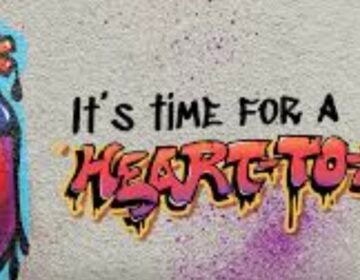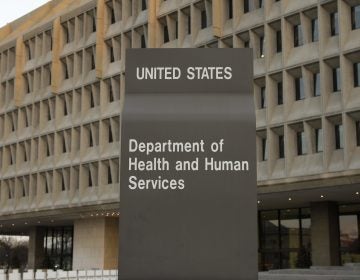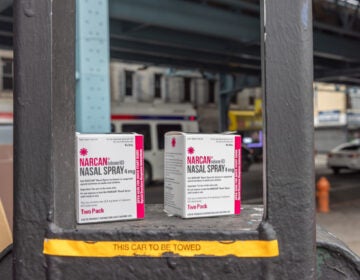Philly briefs neighborhood on cleanup of Conrail heroin encampment
-
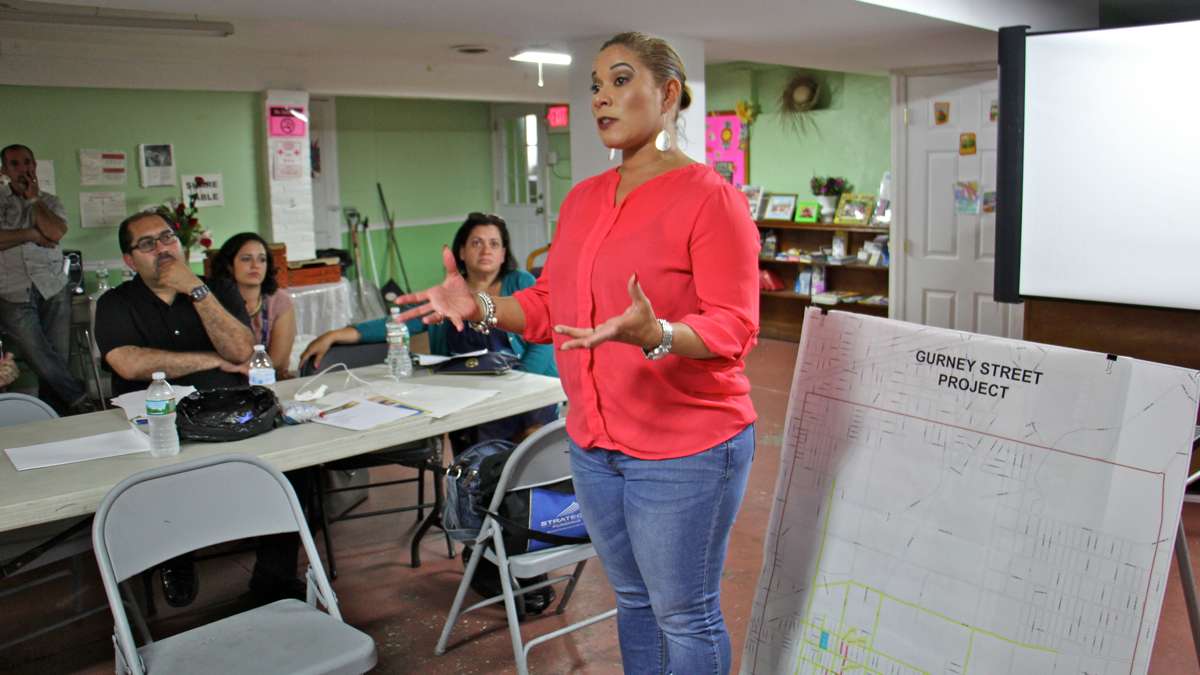
Joanna Otero-Cruz, deputing managing director for community services, prepares Kensington residents for the impact of the Gurney Street clean-up project. (Emma Lee/WHYY)
-
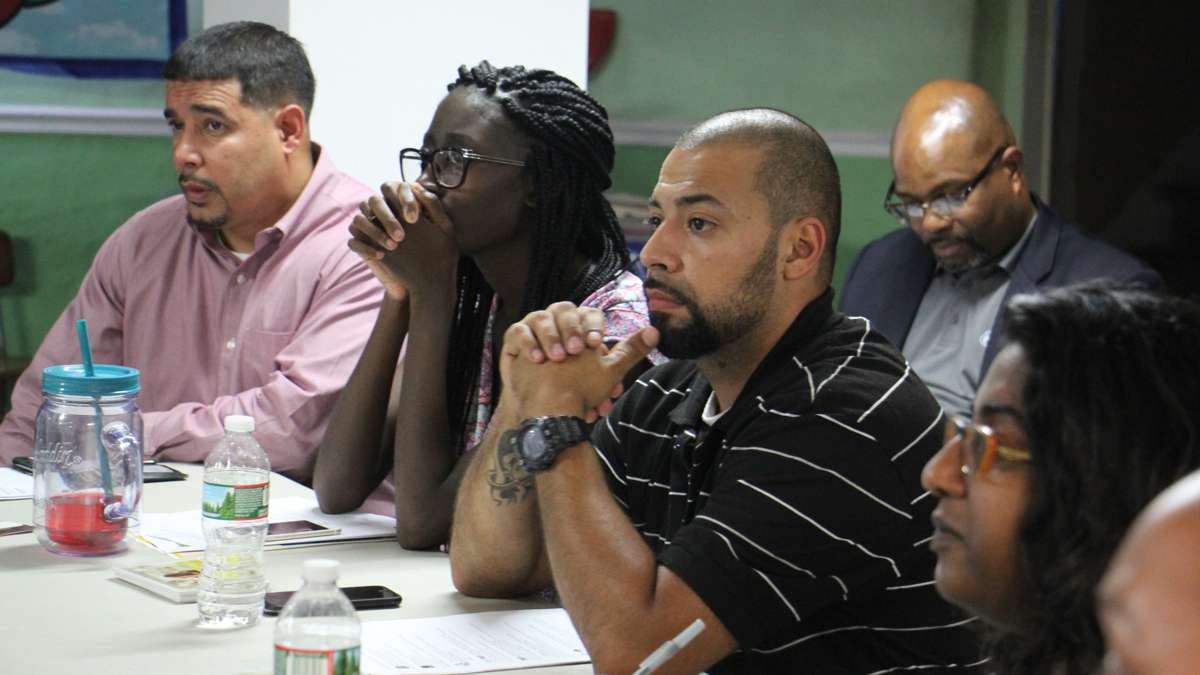
About 30 people attended a meeting in the basement of the Iglesia Del Bario church in Kensington to learn about the plan to clean up the heroin encampment on the Conrail tracks at Gurney Street. (Emma Lee/WHYY)
-
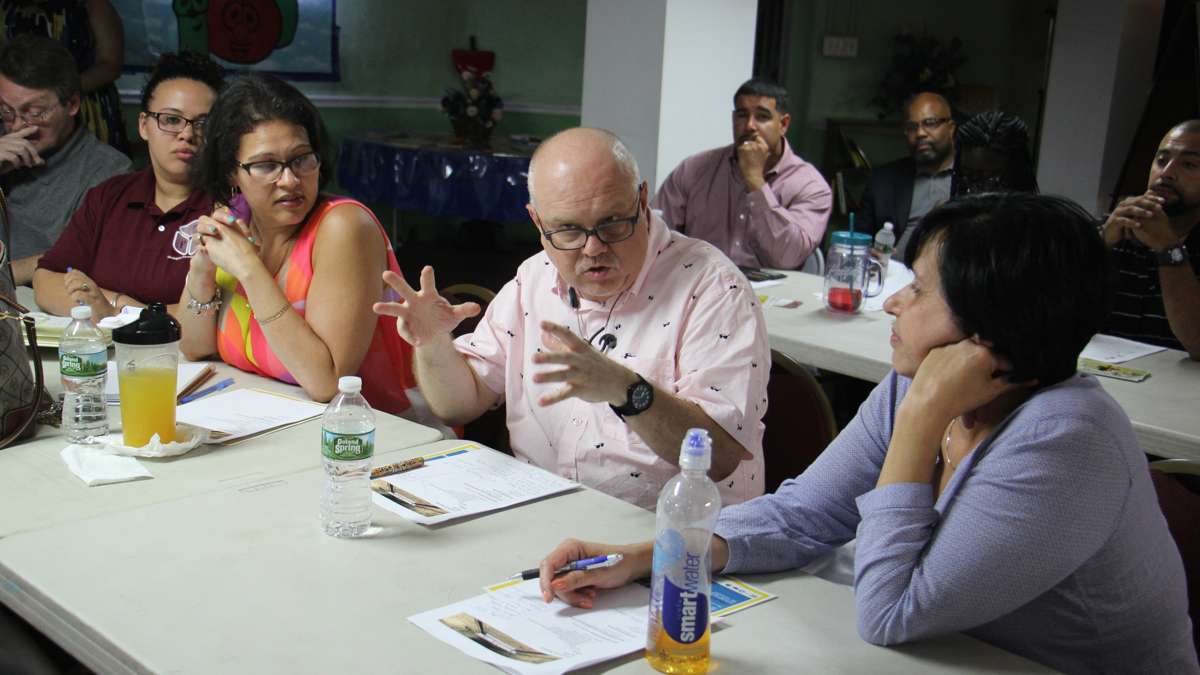
Jose Benitez, executive director of Prevention Point Philadelphia speaks during a meeting about the impact that the heroin camp clean up will have on the surrounding neighborhood. (Emma Lee/WHYY)
-
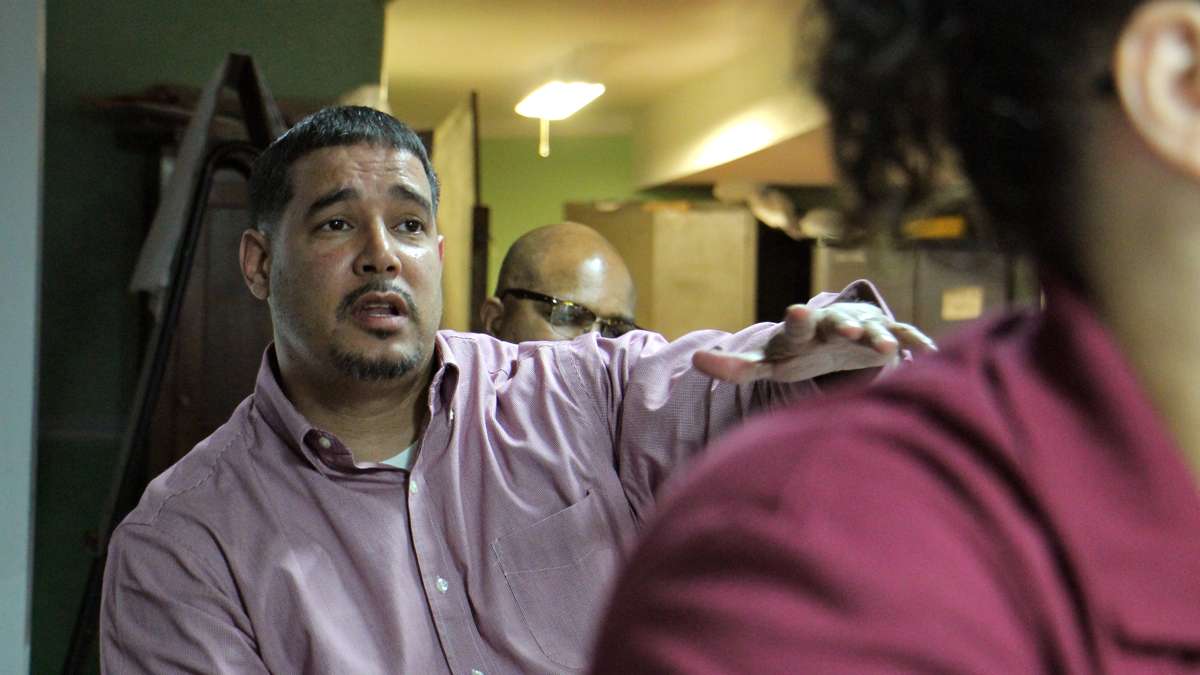
Pastor Joey Crespo of Victory Outreach men's recovery home talks about the services that will be needed as the Gurney Street heroin camp is cleaned up. (Emma Lee/WHYY)
-
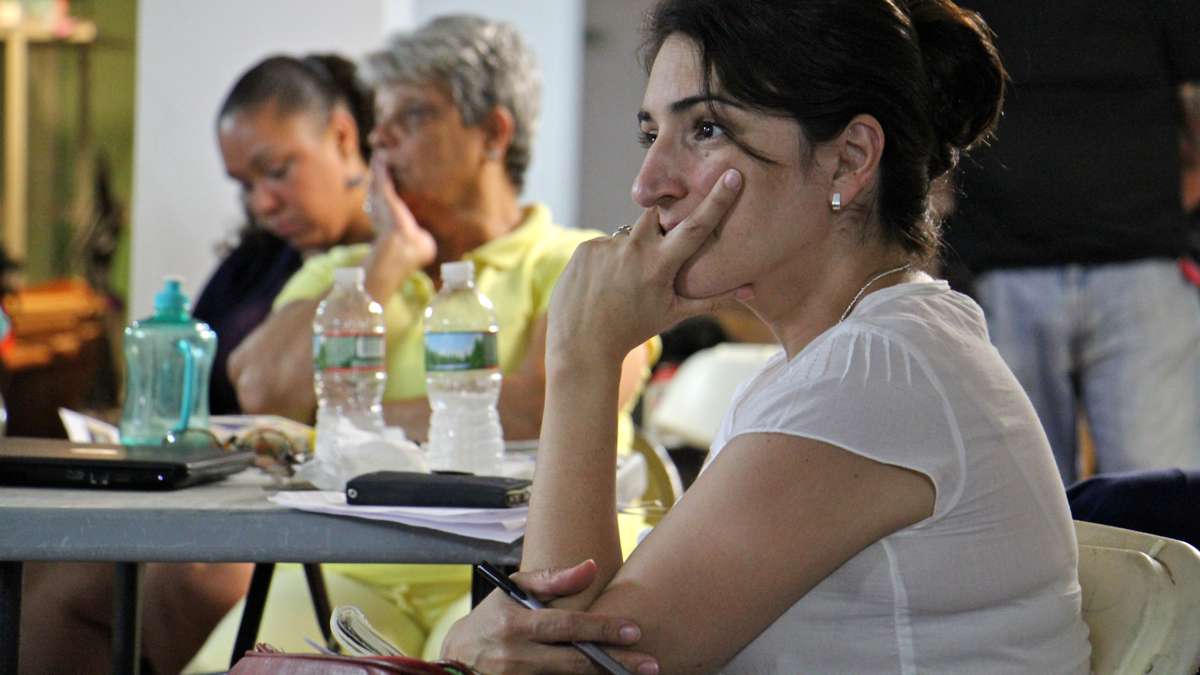
Patricia Codina, community development director at Impact Services, attends a meeting to discuss the Guerney Street clean up project. (Emma Lee/WHYY)
Philadelphia is trying to get the word out about the plan to clean up a stretch of railroad tracks in West Kensington plagued by the opioid epidemic.
Deputy managing director Joanna Otero-Cruz said at a community meeting Tuesday night that the efforts to clean and secure the half-mile stretch of Conrail tracks along Gurney Street will begin July 10th and last six to 8 weeks.
Dozens of homeless heroin users who live and feed their addictions in encampments along the tracks will be removed during the cleanup effort. The city will work with Conrail to clear debris and dirty needles and construct fencing to keep people from coming back.
Otero-Cruz said that the city recently began talking with people at the tracks, and this work will continue long after the cleanup work is finished.
“It is going to take time,” she said.
But some community members worry that the homeless drug users displaced by the cleanup work will move more of the drug problem into nearby blocks, which city officials already refer to as an “open-air drug market.”
“This is their homes that they’re going to walk into and raze to the ground,” said Patricia Codina, who works for the local community development corporation Impact Services. “When that place is cleaned up and a fence is put in, where is it that they’re going to go? I don’t think anyone has come up with an answer for that yet.”
The city has promised to provide drug users at the tracks with housing and treatment, but Codina questioned whether it has committed enough resources to help everyone.
There is also the question of whether the people struggling with heroin addiction can be persuaded to accept help.
Otero-Cruz told the couple-dozen community members at Tuesday’s meeting that outreach workers have already spoken with 62 people at the tracks. Only three accepted housing or treatment, she said.
“That is the reality of the work,” Otero-Cruz said.
Still, the pastor of the church where the meeting was held said the community was hopeful that the cleanup project would bring real change to an area that has struggled with a drug problem for decades.
“It’s a good beginning,” said Eunice Sanchez, who locals know as “Pastor Cookie.”
“Most are happy that something is happening,” Sanchez said. “I mean who wants to live like this? There’s hope.”
WHYY is your source for fact-based, in-depth journalism and information. As a nonprofit organization, we rely on financial support from readers like you. Please give today.


